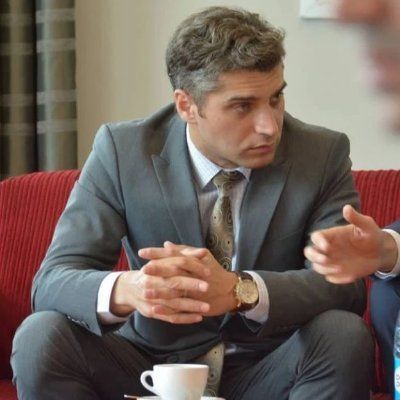Armenia’s crossroads — peace, provocation, or political paralysis? [ANALYSIS]
![Armenia’s crossroads — peace, provocation, or political paralysis? [ANALYSIS]](https://www.azernews.az/media/2025/06/07/349139074-5_1.png)
As Azerbaijan and Armenia edge closer to finalizing a long-anticipated peace agreement, a wave of provocations from Armenian revanchist and nationalist circles threatens to destabilize what could be a historic turning point. These factions, many of whom operate both within Armenia and across its diaspora networks, are not only engaging in smear campaigns against Azerbaijani officials but also working to reintroduce irredentist narratives into the political discourse.
Their aim is clear: to repackage outdated territorial ambitions under the guise of minority rights or historic grievances, hoping to regain relevance in a rapidly changing regional reality. The recent smear campaign launched by a fringe Armenian group in Argentina is emblematic of this effort. Using obscure media platforms, they have attempted to fabricate claims that Armenia remains in an active state of war with Azerbaijan—a narrative directly contradicted by the Armenian government’s own steps toward peace.
Such disinformation campaigns reflect a deeper truth: while the Armenian state appears to be gradually reconciling with its geopolitical limitations, elements within its society remain unwilling to accept the current realities. These voices seek not peace, but a return to a past shaped by occupation and confrontation—an option that is neither viable nor acceptable in the current regional and international context.
Prime Minister Nikol Pashinyan’s administration has signaled a willingness to normalize relations with Azerbaijan, despite facing significant internal resistance. The sincerity and consistency of Yerevan’s position remain subjects of debate, but compared to previous decades, there is now at least a perceptible shift in tone. Still, political ambiguity persists. In Armenia’s fragmented political landscape, words and deeds often diverge. A conciliatory message from Yerevan does not necessarily translate into coordinated policy action on the ground.
Moreover, Armenian domestic politics are influenced not only by internal nationalist opposition but also by external diaspora structures, particularly those rooted in the West. These groups, deeply invested in the mythology of a “Greater Armenia,” often act independently of Yerevan and are driven more by sentiment than strategy. They amplify outdated territorial narratives, launch public campaigns rooted in misinformation, and attempt to frame any Armenian concession as betrayal. These efforts do little to advance Armenia’s national interests; on the contrary, they risk isolating the country further.
In the current geopolitical climate, major international actors are increasingly reluctant to engage with or support entities that defy international law or propagate frozen conflicts. The global energy transition, shifting power balances, and growing emphasis on regional connectivity place a premium on stability. Armenia’s irredentist fringe is thus swimming against the tide. Their provocations are not only ineffectual but counterproductive. No serious international stakeholder is willing to jeopardize strategic partnerships for the sake of outdated illusions.
It is worth noting that despite the challenges, Azerbaijan’s diplomacy has remained restrained. In contrast to the iron-fist policy that defined the military operations of 2020, Baku has opted to respond to these provocations with measured firmness. Azerbaijan continues to articulate its commitment to regional peace and sovereignty through diplomatic channels while remaining unequivocal in its red lines.
However, patience has limits. The revival of false narratives about ethnic cleansing, fabricated “statehood” claims, and distorted histories of Garabagh only serves to re-aggravate tensions and undermine progress. These narratives do not reflect present-day realities, where Azerbaijan exercises full sovereignty over its internationally recognized territory, and where the emphasis is on reconstruction, reintegration, and forward-looking development.
The real danger for Armenia is not external; it is internal. If the revanchist elements succeed in infiltrating future governments or driving public discourse, the consequences could be catastrophic—not just for Yerevan, but for the entire South Caucasus. The seeds of peace currently being planted risk being uprooted before they bear fruit.
For Armenia, the path ahead is clear but narrow. Either it moves toward genuine normalization—recognizing the sovereignty of its neighbors and focusing on economic integration—or it remains hostage to a self-defeating ideology that has already led to strategic collapse. Clinging to outdated illusions about Garabagh will only prolong suffering and defer Armenia’s reintegration into regional processes.
Azerbaijan has made it clear: Garabagh is an indivisible part of its sovereign territory. It cannot and will not be the battleground for another generation of conflict. Attempts to relaunch conflict narratives will not rewrite the facts established by diplomacy, law, or force.
This is perhaps the final call for Armenia’s political elite to act responsibly. Peace is not merely an option—it is a necessity. And in this post-conflict environment, it is no longer rhetoric but action that will define legacies. Those who continue to gamble with the future—stoking tensions for personal or ideological gain—do so at great peril, not only to themselves but to the fragile peace of the region.
If the past was about the clash of arms, the future must be about the maturity of statecraft. In that future, there is no room for territorial claims, proxy propaganda, or nostalgia for lost wars. What remains is the choice between reconciliation and regression. And that choice, more than ever, belongs to Yerevan.
Here we are to serve you with news right now. It does not cost much, but worth your attention.
Choose to support open, independent, quality journalism and subscribe on a monthly basis.
By subscribing to our online newspaper, you can have full digital access to all news, analysis, and much more.
You can also follow AzerNEWS on Twitter @AzerNewsAz or Facebook @AzerNewsNewspaper
Thank you!

